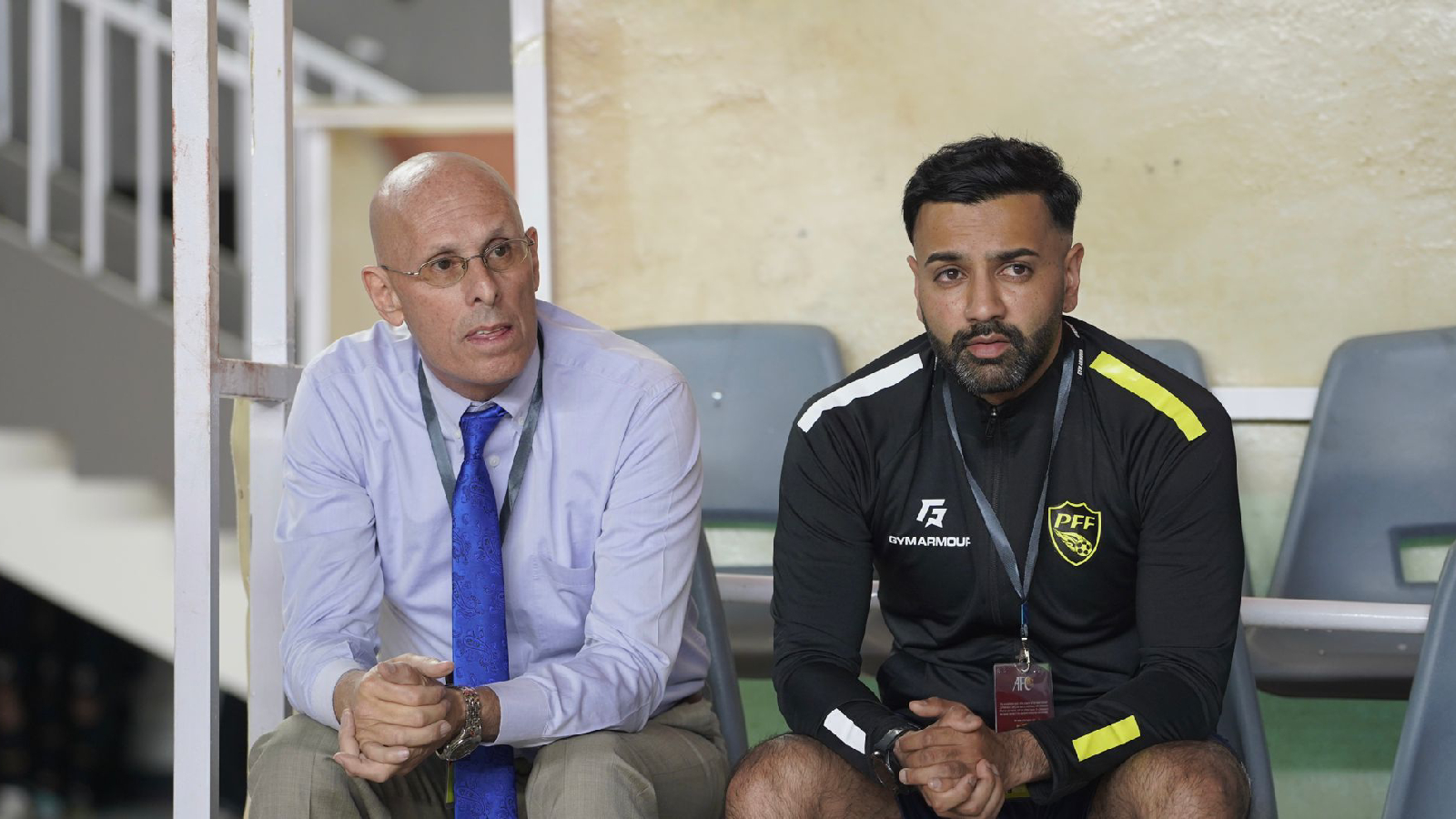Football
Bollywood songs, food trails and breaking barriers: How a British-Indian coach Trishan Patel is fuelling Pakistan’s football dream

On the eve of the Pakistan football team’s 2026 FIFA World Cup qualifier match against Saudi Arabia that took place on Thursday, a bunch of players broke into a Bollywood medley after their training session concluded.
It was a way to relax after an intense session. Crucially, though, the songs were the Pakistani players’ way to break the ice with the newest member of their set-up: a British Indian coach whose family’s roots are in Navsari, Gujarat.
Trishan Patel has worked as a pizza delivery boy, organised football trips for schools in the UK and been an analyst. Nothing would match the thrill and the adventure of his latest assignment as Pakistan’s assistant coach, a role he began last month. Pakistan suffered a 0-3 loss against Roberto Mancini- coached world number 51 Saudi Arabia.

“‘Go on and help break the barriers.’ That was the first thing my mother told me (when he got the offer). We talked about how this is a positive step between the two countries and it may open up some new communications,” Patel told The Indian Express from Islamabad, where the match was played.
The 36-year-old Patel, who had earlier worked with Pakistan as an analyst, joined the team as an assistant coach under Stephen Constantine in May. When the offer came to be a part of the Pakistani set-up, the UEFA ‘A’ License coach, who has worked with some of the top academies in England, wasn’t hesitant one bit.
Patel knew his Indian heritage could become a talking point, but from the moment he arrived, ‘people as well as the team have been welcoming and thankful’.
“I grew up in a society where we don’t judge people by their religion or nationality. I have many Pakistani friends back home and they too have been messaging me, offering all kinds of help and hopeful of the Pakistan team doing well,” Patel said. “I consider myself as a part of this country too, with which we share a common heritage, and want them to do well.”


Patel’s grandparents first migrated to Kenya from Navsari before settling in the industrial town of Luton, England, in the late 1960s. His father Satish worked initially at an automobile firm before joining the IT sector while mother Saroj worked in a soldering company.
Patel, along with his two brothers, would attend local football training programmes before he decided to make a career as a football analyst as well as a coach.
“Football comes to you in one way or another as a kid growing up in England. I was lucky that me and my brothers have good exposure to the game. Post college, I wanted to make a career as a football analyst,” he said.
It wasn’t smooth sailing all the time. “The first time I did that was organising football camps in the US for school programmes. It was hard for my family to support me but they did whatever they could. I would also work as a pizza delivery boy along with a couple of other jobs as a local coach to earn money for all those trips,” added Patel, who also runs a suicide prevention campaign in memory of his father, who passed away in 2016.

Stints with local football programmes coupled with a graduate degree in Applied Education Services were followed by Patel’s first experience with a football club. He worked with Luton FC Academy as a community coach and later as a Centre of Excellence coach for six years before working as a coach with Liverpool International Academy from 2016 to 2023. Simultaneously, he worked with a lower division side Berkhamsted Football Club, from 2020 to 2023.
Last year, the Pakistan Football Federation approached Patel to work with them for the first time, as an analyst of the then 195th-ranked team. He took it up, holding virtual sessions with the players.
It wasn’t a straightforward assignment, given the language barrier, the lack of exposure of young Pakistani players and the apathetic approach towards the sport in the country which was banned by the world body FIFA twice in recent years.
Patel said having constant talks with Constantine, a former India coach who was appointed as Pakistan’s coach last year, helped. The duo has known each other for the last three years, Patel said.

“Stephen has been fantastic. I was supposed to work with him for East Bengal before things did not work. We have this daily discussion about the challenges he faces and one of them is not having a national league and coaches programme. There is no dearth of young talent. Somebody like 16-year-old Abdur Rehman in the Pakistan team can be an excellent example,” Patel said.
He added: “My focus this week has been trying to build a one-to-one connection with players. It’s not about football which we need to talk about. Sometimes, it can be about family, culture or any other thing over the dinner table.”
In the two weeks since he arrived in Islamabad, Patel has been spending time with the 24-member Pakistan squad, and the players have taken him to local markets for shopping, buying ornaments and paintings for his family, and food.
“One thing that worked to my advantage is we had some common topics like food, movies and songs and the players trusted me. A lot of them have faced hardships and it’s good that they opened up to me. We had an introduction session for young players this week and a player sang Kabhi Khushi Kabhie Gham apart from other Bollywood songs. And we all would clap and sing together,” shared Patel.



)






